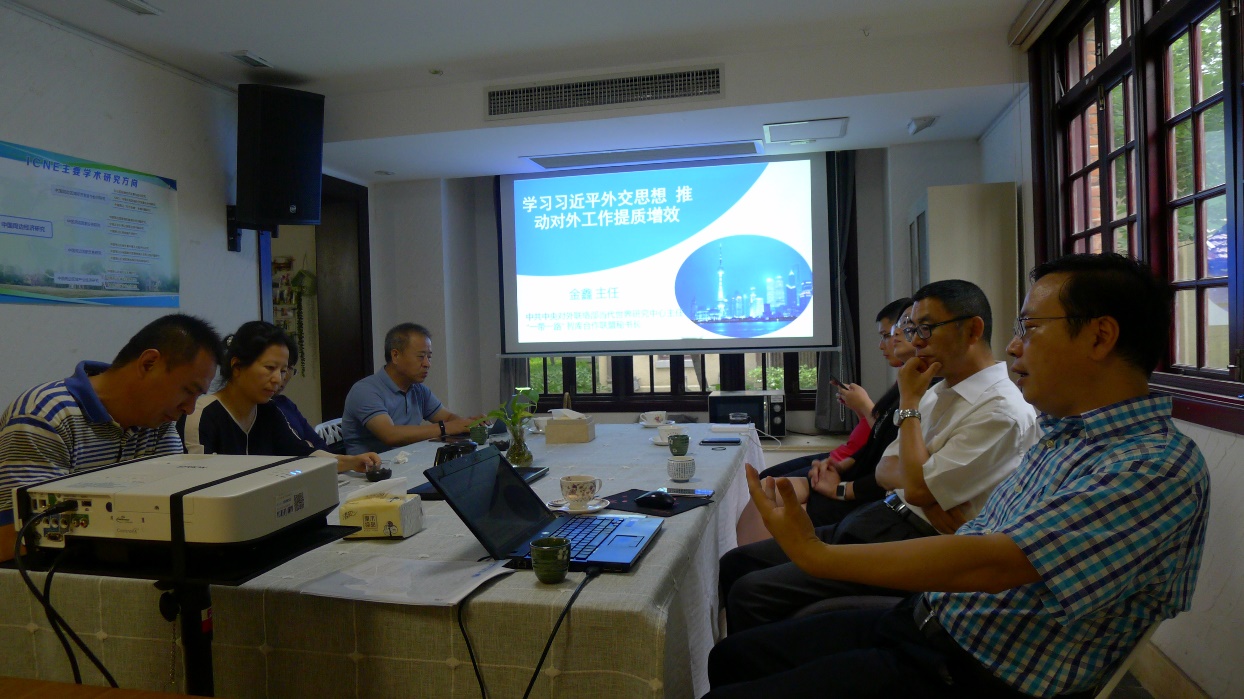Professor Jin Xin’s lecture started with a brilliant beginning, “In China's diplomatic layout, big powers are the key, and the neighboring areas are the most important.” He pointed out that when dealing with diplomatic relations, the first task is to stabilize the neighboring areas. China should make all-round efforts in the fields of economy, engineering and people's livelihood so as to enhance its international contribution to the development and stability of China's neighboring regions. Of course, China should also deal with the relationship with other big powers carefully, shorten the unsuitable period among big powers, and jointly make the world economy "cake" bigger and better.
Professor Jin Xin also pointed out that no the core of “One Belt and One Road” is links, and the key of which is common. As one of the important contents of the "five links", the common aspiration of the people must be carried out throughout the whole process of "one belt and one road" construction and involves all fields. It is not only a link between China and foreign countries, but also equally worth our concern and advocacy to take an active part in the "Belt and road" initiative. China should actively promote the interconnection between regions, countries and countries worldwide, and encourage the international community to do a good job of interconnection. He said: "the construction of a common large market based on interconnection and interconnection is the core concept of the ‘Belt and Road’, serving China's core goal of promoting the construction of a community of human destiny. The "one Belt and one Road" initiative originated from China, but also belongs to the whole world. With the increasing number of participating countries, in order to enhance the efficiency of cooperation, many international politicians and scholars look forward to further strengthening the mechanism of "Belt and Road" and building more functional cooperation platforms. As for how to improve relevant cooperation mechanism according to the needs of the development process of "one Belt and one Road”, it’s worthwhile to further study. Finally, Professor Jin Xin reminds us that as the main means of think tank research, teachers and students should make full use of various social channels, stand on the solid ground, and conduct field surveys to the countries or regions of the study subjects.
Professor Jin, who always smiled with his fine-rimmed glasses, seemed very refined and gentle. He talked in a fluent way, occasionally quoting classics to justify the case. The present teachers and students of ICNE listened attentively, nodding their heads sometimes and taking notes sometimes. At the end of the interactive period, professor Zhang Yongqing, researcher Qin Bingtao and Mao Lei consulted Mr. Jin on China's energy risk of the Iranian nuclear crisis in the United States, the concerns about the hollowing of domestic industries after the acceleration of OFDI in neighboring countries and the trend of trade frictions between China and the US. Professor Jin was not only eager to answer, but also provided new research ideas for ICNE teachers and students from the perspectives of dislocation, complementarity and differential development of industrial layout in neighboring countries and some regions in China.

Report by :Dong Chenchen
Translate by :Zhang Dawei;Proofread by:Xu Xueying
2019,6,20

